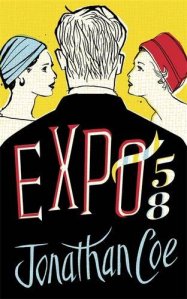 I completely omitted to post anything in celebration of William Shakespeare’s “birthday”, commonly given as April 23rd (last week).
I completely omitted to post anything in celebration of William Shakespeare’s “birthday”, commonly given as April 23rd (last week).
But as by now a lot of people know this wasn’t his birthday at all, and in fact we don’t actually know when he was born, only when he was baptised – 26th April 1564 and when he died – 23rd April (bingo!) 1616.
Anyway, should you wish to ‘celebrate’ in any way this week and you really don’t want to sit through another Hamlet or Romeo & Juliet then you could do no better than listen to this week’s Words and Music on BBC Radio 3 (click here), with 75 mins worth of “poetry, prose and music inspired by Shakespeare”. But click in haste as the broadcaste will be available but until next Sunday (4th Maye)! (weak attempt at Shakespearean language..)
Which brings me to my little grouch about Words and Music : why oh why can’t we have a download/podcast of each programme after they’ve been broadcast? These programmes are so well put together and of such good quality that it seems a shame they have to disappear after a week.
But as The Bard himself would have said: “Parting (with a one week only netcast) is such sweet sorrow”, or “If (words and ) music be the food of love, play on…”.
Happy Un-birthday Mr. Shakespeare.
edit: having published this post, WordPress spookily informed me it was my 23rd …














 Any road up, this morning – quite by chance – I discovered that Brummy-born novelist Jonathan Coe is about to publish his new novel Expo 58. Coe is one of those authors whose novels I have consistently enjoyed and indeed devoured one by one over the years. What A Carve Up, The Rotters’ Club (also made into a decent TV drama series) and The House of Sleep to name but a few. I must get round to re-reading those some time or other although right now of course I’m looking foward to Expo 58, described by
Any road up, this morning – quite by chance – I discovered that Brummy-born novelist Jonathan Coe is about to publish his new novel Expo 58. Coe is one of those authors whose novels I have consistently enjoyed and indeed devoured one by one over the years. What A Carve Up, The Rotters’ Club (also made into a decent TV drama series) and The House of Sleep to name but a few. I must get round to re-reading those some time or other although right now of course I’m looking foward to Expo 58, described by 



